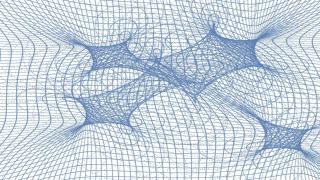Bibcode
Mediavilla, E.; Jiménez-vicente, J.; Mejía-restrepo, J.; Motta, V.; Falco, E.; Muñoz, J. A.; Fian, C.; Guerras, E.
Bibliographical reference
The Astrophysical Journal, Volume 880, Issue 2, article id. 96, 6 pp. (2019).
Advertised on:
8
2019
Journal
Citations
14
Refereed citations
14
Description
We test the recently proposed black hole mass scaling relationship based
on the redshift with respect to the quasar's rest frame of the Fe III
λλ2039-2113 line blend. To this end, we fit this feature
in the spectra of a well suited sample of quasars, observed with
X-shooter at the Very Large Telescope, whose masses have been
independently estimated using the virial theorem. For the quasars of
this sample we consistently confirm the redshift of the Fe III
λλ2039-2113 blend and find that it correlates with the
squared widths of Hβ, Hα, and Mg II, which are commonly used
as a measure of M BH/R to determine masses from the virial
theorem. The average differences between virial and Fe III
λλ2039-2113 redshift-based masses are 0.18 ± 0.21
dex, 0.18 ± 0.22 dex, and 0.14 ± 0.21 dex, when the full
widths at half maximum (FWHMs) of the Hβ, Hα, and Mg II lines
are, respectively, used. The difference is reduced to 0.10 ± 0.16
dex when the standard deviation, σ, of the Mg II line is used
instead. We also study the high signal-to-noise ratio composite quasar
spectra of the Baryon Oscillation Spectroscopic Survey, finding that the
Fe III λλ2039-2113 redshifts and Mg II squared widths,
{FWHM}}Mg {{II}}}2, match very well the
correlation found for the individual quasar spectra observed with
X-shooter. This correlation is expected if the redshift is
gravitational.
Related projects

Relativistic and Theoretical Astrophysics
Introduction Gravitational lenses are a powerful tool for Astrophysics and Cosmology. The goals of this project are: i) to obtain a robust determination of the Hubble constant from the time delay measured between the images of a lensed quasar; ii) to study the individual and statistical properties of dark matter condensations in lens galaxies from
Evencio
Mediavilla Gradolph